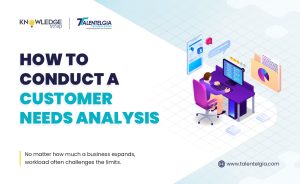Healthcare businesses are constantly seeking ways to optimize their revenue to remain competitive in the market. In today’s digital age, one of the most effective ways to achieve this goal is by implementing business process automation (BPA) solutions.
Although the percentage of companies that have fully automated at least one function has only increased modestly from 29% in 2018 to 31% in 2020, it’s still crucial for healthcare providers to utilize BPA and work efficiently.
This guide will provide an overview of how healthcare software development services can help healthcare businesses optimize their revenue through BPA.
Assessing Your Healthcare Business for Revenue Optimization
Before implementing BPA, it is essential to assess your healthcare business to identify areas for improvement. Start by identifying your current revenue sources and analyzing your financial data and performance metrics.
This will help you understand where you are making the most revenue and where you need to improve. It is also essential to evaluate your competition and market trends to identify potential opportunities for growth.
How to Implementing Business Process Automation (BPA)?
BPA refers to the use of technology to automate repetitive tasks and streamline workflows in your healthcare business. Implementing BPA solutions can save you time and money by reducing manual labor, improving accuracy, and increasing efficiency.
One of the most significant benefits of BPA in healthcare businesses is the ability to improve revenue cycle management. Revenue cycle management refers to the process of managing the financial aspects of patient care, including billing, collections, and claims processing. By automating these processes, healthcare businesses can reduce errors, improve accuracy, and accelerate cash flow.
BPA solutions can also help healthcare businesses improve patient engagement and satisfaction. For example, automated appointment reminders and patient portal solutions can improve communication and streamline patient-provider interactions. This can lead to improved patient outcomes, increased patient loyalty, and ultimately, increased revenue.
Another area where BPA can have a significant impact is supply chain management. By automating the procurement process, healthcare businesses can reduce costs, improve inventory management, and increase efficiency. This can lead to improved financial performance and better patient outcomes.

Utilizing Offshore Software Development
Offshore software development involves partnering with a third-party software development company in a different country to develop software solutions for your healthcare business. Offshore development companies typically offer lower rates than domestic companies, which can help healthcare businesses reduce their software development costs without compromising on quality.
Another benefit of offshore software development is access to a larger talent pool. Offshore development companies have access to a vast pool of skilled developers and engineers who can bring their expertise to your healthcare business. This can lead to the development of high-quality software solutions that can improve patient outcomes, streamline operations, and drive revenue growth.
Selecting the Right Offshore Software Development Partner
When selecting an offshore software development partner, it is essential to consider several factors. Start by researching potential partners and evaluating their track record, experience, and expertise. Look for companies that specialize in healthcare software development services and have experience working with businesses similar to yours. Check for certifications and accreditations, such as ISO 9001 or CMMI, which can provide assurances about the quality of their services.
Communication is also critical when working with an offshore development partner. Look for companies that have a strong communication process and are responsive to your needs. Consider factors such as time zone differences and language barriers and ensure that the offshore development company has processes in place to address these challenges.
Managing Offshore Development Projects Effectively
Managing offshore development projects requires a different approach than managing domestic projects. It is essential to establish clear goals, timelines, and milestones and to communicate them effectively with your offshore development partner. Use project management tools such as JIRA, Trello, or Asana to track progress, identify issues, and communicate updates.
Effective communication is essential when managing offshore development projects. Schedule regular meetings with your offshore development team to discuss progress, provide feedback and address any issues. Use video conferencing and collaboration tools to facilitate communication and ensure everyone is on the same page.
What are the Benefits of Automating Revenue Cycle Management for Healthcare Providers?
Healthcare Software Development Services have revolutionized the way healthcare providers operate their business by offering innovative solutions for revenue cycle management. Revenue Cycle Management (RCM) refers to the process of managing the financial aspects of patient care, from patient registration and billing to claim submission and payment collection.
Healthcare providers rely on RCM to ensure smooth operations and optimal revenue generation.
The traditional approach to RCM involves a lot of manual work and is prone to errors, leading to revenue losses and poor financial performance. However, with the advent of healthcare software development services, healthcare providers can automate their revenue cycle management processes and enjoy several benefits.
Now, we will discuss the benefits of automating RCM for healthcare providers.
Streamlined Workflow
Automating RCM allows healthcare providers to streamline their workflow and eliminate inefficiencies. The software can handle routine tasks such as patient registration, insurance verification, claim submission, and payment processing.
This frees up staff time and enables them to focus on more critical tasks such as patient care and revenue analysis. Automating RCM also ensures that all processes are standardized, reducing the risk of errors and delays.
Increased Revenue
Automating RCM can significantly increase revenue for healthcare providers. The software can identify and address billing errors, ensure timely claim submission, and facilitate faster payment collection. This reduces revenue leakage and improves the overall financial performance of the organization.
With automated RCM, healthcare providers can also monitor key performance indicators (KPIs) such as denial rates and days in accounts receivable, enabling them to make data-driven decisions to optimize revenue generation.
Better Cash Flow
Automating RCM can also improve cash flow for healthcare providers. The software can automate payment posting and reconciliation, enabling faster and more accurate payment processing. This reduces the time it takes to receive payments and increases the predictability of cash flow.
The software can also identify underpayments and facilitate prompt follow-up to recover the full amount owed.
Improved Patient Satisfaction
Automating RCM can improve patient satisfaction by reducing billing errors, improving billing transparency, and facilitating faster claim processing. Patients are more likely to be satisfied with their healthcare provider when they receive accurate and timely billing information.
Automating RCM can also reduce the administrative burden on healthcare providers, enabling them to spend more time with patients and providing a higher level of care.
Quality Healthcare Data Management
Automating RCM can improve the quality of healthcare data management. The software can capture and store data from various sources, including patient registration, insurance verification, and claim processing. This enables healthcare providers to have a comprehensive view of patient care and financial performance.
The software can also generate customized reports and analytics, enabling healthcare providers to monitor and optimize their RCM processes continually.
Enhanced Regulatory Compliance
Automating RCM can also enhance regulatory compliance for healthcare providers. The software can ensure that all billing and payment processes comply with federal and state regulations. It can also facilitate prompt follow-up on denied claims, reducing the risk of compliance violations.
The software can also generate audit trails and other documentation required for regulatory compliance.
Conclusion
In conclusion, healthcare businesses can optimize their revenue generation and growth through the use of healthcare software development services and best practices for revenue optimization.
By implementing these best practices, healthcare businesses can achieve sustainable revenue growth and improve patient outcomes. Case studies and success stories of businesses that have successfully implemented these strategies provide a valuable example for others to follow.
Overall, Business Automation Experts can play a significant role in revenue optimization for healthcare businesses. From patient portals to financial management systems, these solutions can help businesses streamline operations, enhance the patient experience, and manage their finances effectively.







